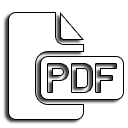Ngitus Bali Sebagai Kontrol Sosial Di Desa Murutuwu: Kajian Sosiologis-Teologis terhadap Kearifan lokal Dayak Ma’anyan Kristen Indonesia
Kajian Sosiologis-Teologis terhadap Kearifan lokal Dayak Ma’anyan Kristen Indonesia
DOI:
https://doi.org/10.59002/jtp.v4i2.61Keywords:
Ngitus Bali, Desa Murutuwu, Kontrol Sosial.Abstract
This study examines the role of the Ngitus Bali customary law in Murutuwu Village, Central Kalimantan, as a social control mechanism that continues to be upheld despite the influence of modernity and positive law. The Ngitus Bali customary law, involving traditional leaders such as the Pangulu and Mantir, is used to resolve various social disputes, ranging from household issues to land conflicts, with sanctions and reconciliation ceremonies as part of the practice. Although formal laws have been implemented in the village, the community still relies on resolving disputes through customary courts, which is considered more relevant and effective in maintaining social harmony. This research uses a qualitative approach with interviews and observations to explore the community's understanding of customary law and its role in maintaining social stability. The findings indicate that Ngitus Bali functions as a form of social control that strengthens social order and preserves cosmic balance within the Dayak Ma’anyan community in Murutuwu Village.
References
A.B Hudson. (1967). Padju Epat: The Etnograpy and Social Structure Of A Maanjan Dajak Group In Southestern Borneo. Cornell University.
Allan V. Horwitz. (1990). The Logic of Social Control. Springer.
Faisal, S. (2003). Format-format penelitian sosial. Raja Grafindo Persada. http://library.stik-ptik.ac.id
J. Dwi Narwoko & Bagong Suyanto. (2004). Sosiologi; Teks Pengantar dan Terapan (3rd ed.). Kencana Prenada Media Group.
Jamie S. Davidson. (2010). Adat dalam politik Indonesia. Yayasan Pustaka Obor Indonesia.
Keloso. (2005). Developing The Concept Of Grace To Build A Reconciliation Theology In The Dayak Society. The Faculty Of The South Asia Graduate School Of Theology.
Keloso Ugak. (2008). Lingkungan Hidup Adalah Pulaksanai-Saudara Manusia. In Marko Mahin & Tulus Tu’u (Ed.), Mengasihi Tuhan & Sesama Ciptaan (pp. 77–78). Unit Publikasi-STT GKE.
Kinurung & Sudianto. (2023). Wawancara: Kurbel. S. Aban.
Kinurung Maleh. (2023a). Wawancara Jerryan.
Kinurung Maleh. (2023b). Wawancara Minalia.
Kinurung Maleh. (2023c). Wawancara Pdt. Novan Prasetyo.
M. Taufiq Rahman (ed). (2022). Toleransi dan Perdamaian di Masyarakat Multikultural. Prodi S2 Studi Agama-Agama UIN Sunan Gunung Djati Bandung.
Moleong, L. J. (2007). Metodologi penelitian kualitatif edisi revisi. Remaja Rosdakarya. http://library.stik-ptik.ac.id
Pemda Bar-Tim. (2006). Buku Hukum Adat Ma’anyan Paju Epat. Yayasan MPP-GMTPS dan Pemda Bar-Tim.
Prof. Dr. A.S. Alam. (2018). Kriminologi Suatu Pengantar. Preneda Media.
Siska Lis Sulistiani. (2020). Hukum Adat di Indonesia. Sinar Grafika.
Sudianto. (2023a). Wawancara Kitik Ruas.
Sudianto. (2023b). Wawancara Pdt. Roberto Fernando.
Sugiyono. (2008). Metode Penelitian Kuantitatif Kualitatif dan R&D. CV. Alfabeta, Bandung.
Thorolfur Thorlindsson & Jón Gunnar Bernburg. (2004). Durkheim’s Theory of Social Order and Deviance: A Multi-Level Test. European Sociological Review, 20(4), 271–285.
Travis Hirschi. (2017). Causes of Delinquency. Routledge.
Yusuf, A. M. (2016). Metode penelitian kuantitatif, kualitatif & penelitian gabungan. Prenada Media.
Downloads
Published
How to Cite
Issue
Section
License
Copyright (c) 2025 Sudianto Sudianto, Kinurung Maleh, D.Th

This work is licensed under a Creative Commons Attribution 4.0 International License.













